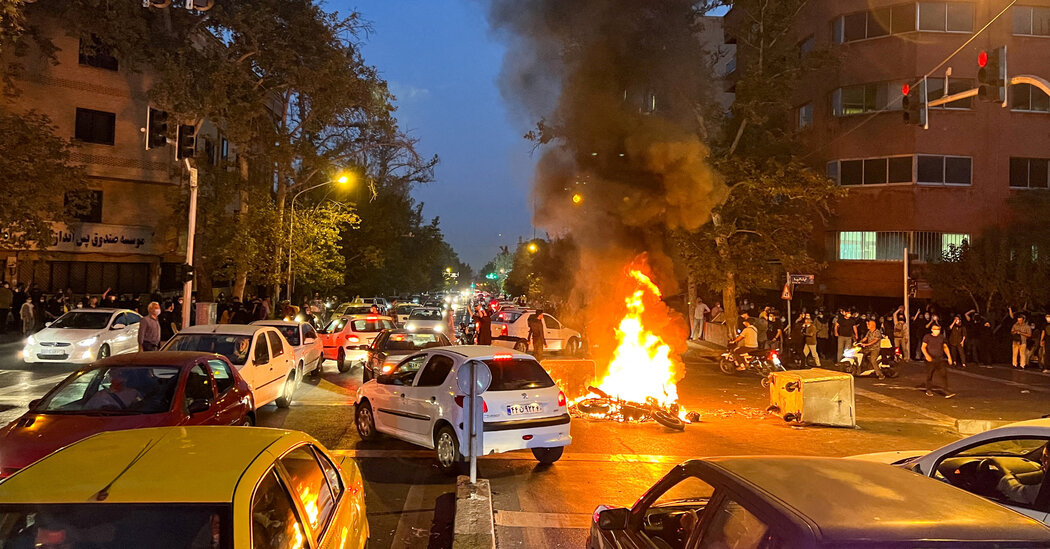The professor of artificial intelligence was a rising star at Iran’s elite Sharif University of Technology. He gained wider fame for his vocal support of the women-led uprising that rocked Iran last year. At one point, he refused to teach until Sharif students arrested in the government’s crackdown against protesters were released.
But speaking up came with a cost — last week, Ali Sharifi Zarchi lost his job, becoming one of at least 15 academics expelled from Iranian universities in the past few weeks because they supported the uprising.
The purging of academics like Mr. Sharifi Zarchi is part of a wide and intensifying crackdown by the government before the anniversary of the start of the uprising this month. In the past few weeks, Iran has arrested women’s rights activists, students, ethnic minorities, an outspoken cleric, journalists, singers and family members of protesters killed by security agents.
Security agents have been contacting relatives of the victims and demanding they remain silent, a group of the families said in a statement posted on Instagram, pledging, “We will resist until the end.” Amnesty International released a report last week documenting 22 cases of government harassment of families of killed protesters, including damaging the graves of their loved ones.
“The threshold of what constitutes an offense that gets one arrested has gone to an unexpected level,” said Tara Sepehri Far, an Iran researcher for Human Rights Watch. “They are trying to make sure at all costs that nothing happens around the anniversary. It shows how nervous they are about the growing frustration and discontent.”
The uprising erupted after a young woman, Mahsa Amini, was arrested by the country’s feared morality police and accused of failing to wear her hijab in accordance with the law. She died in police custody on Sept. 16. Her death set off nationwide protests for nearly six months and a movement, led by women and young girls, for wholesale democratic change in Iran.
Alternate: https://archive.ph/jMKDq


